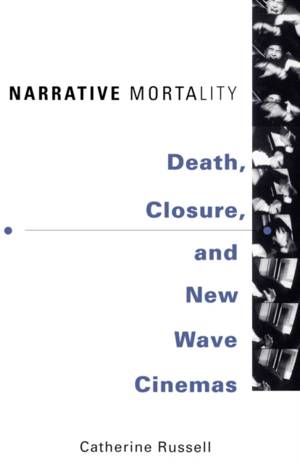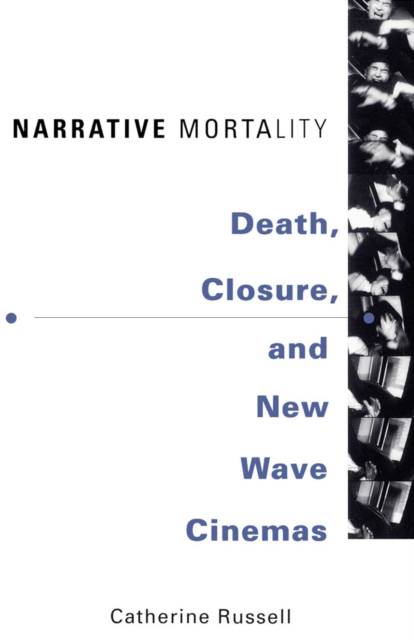
- Retrait gratuit dans votre magasin Club
- 7.000.000 titres dans notre catalogue
- Payer en toute sécurité
- Toujours un magasin près de chez vous
- Retrait gratuit dans votre magasin Club
- 7.000.000 titres dans notre catalogue
- Payer en toute sécurité
- Toujours un magasin près de chez vous
29,45 €
+ 58 points
Description
Analyzes New Wave cinema from a postmodern perspective.
What seems like closure might be something more, as Catherine Russell shows us in this book about death in narrative cinema since the 1950s. Analyzing the structural importance of death in narrative endings, as well as the thematics of loss and redemption, Russell identifies mortality as a valuable critical tool for understanding the cinema of the second half of the twentieth century. Her work includes close textual readings of films by Fritz Lang, Wim Wenders, Oshima Nagisa, Jean-Luc Godard, and Robert Altman, among others.
In these analyses, Russell reveals an uneasy relationship between death and closure, which she traces to anxieties about identity, gender, and national-cultural myths, as well as to the persistence of desire. Drawing on the work of Walter Benjamin, she shows us death as a fundamentally allegorical structure in cinema--and as a potential sign of historical difference, with crucial implications for theories of film narrative and spectatorship.Narrative Mortality provides fresh insight into the dynamics of postmodern cinema as it emerged from the modernist preoccupation with existential mortality. By tracing the role of death from a work that precedes the Brechtian cinema of the 1960s (Beyond a Reasonable Doubt) to several that succeed it (Nashville, The State of Things), the book expands the narrative project of New Wave cinema and ushers it onto a broader historical plane.Spécifications
Parties prenantes
- Auteur(s) :
- Editeur:
Contenu
- Nombre de pages :
- 280
- Langue:
- Anglais
Caractéristiques
- EAN:
- 9780816624867
- Date de parution :
- 09-12-94
- Format:
- Livre broché
- Format numérique:
- Trade paperback (VS)
- Dimensions :
- 150 mm x 228 mm
- Poids :
- 371 g







